The Secret to Improving Your Coffee Machine With Water Filters
Does Your Coffee Machine Already Have a Filter?
![]() Only if you have a high end coffee machine. But you should still filter the water you put into your coffee machine and here’s why.
Only if you have a high end coffee machine. But you should still filter the water you put into your coffee machine and here’s why.
The Secret to Improving Your Coffee Machine With Water Filters
![]() High-end coffee makers have built-in filters that contain both carbon and organic compounds that eliminate both taste and impurities.
High-end coffee makers have built-in filters that contain both carbon and organic compounds that eliminate both taste and impurities.
![]()
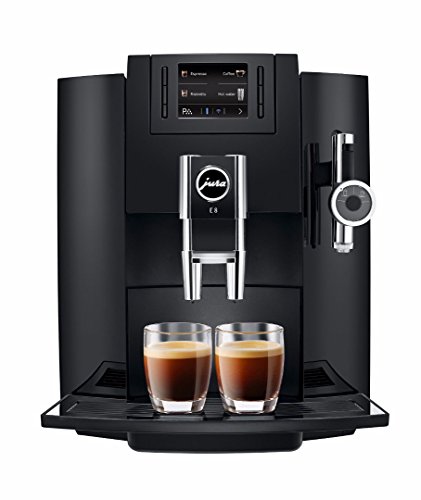 However, pouring purified water into your coffee maker will reduce the amount of work that your machine has to do.
However, pouring purified water into your coffee maker will reduce the amount of work that your machine has to do.
![]() This will increase the lifespan of your expensive coffee filter machine water filter. And it will make the water that your coffee machine filter taste even better.
This will increase the lifespan of your expensive coffee filter machine water filter. And it will make the water that your coffee machine filter taste even better.
![]() Finally, just because the coffee machine has it’s own filter doesn’t mean that it will be powerful enough to deal with your water. The installed filters in a coffee machine are usually very basic.
Finally, just because the coffee machine has it’s own filter doesn’t mean that it will be powerful enough to deal with your water. The installed filters in a coffee machine are usually very basic.
The Best Water Filter For Coffee
AquaTru Water Filter | Berkey Water Filter |
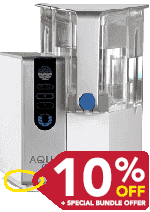 | 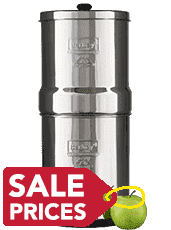 |
| - Arsenic: Approx 90% (unspecified). - Fluoride by 91.8% (WITHOUT extra filters). - Lead 97.5% - Benzene 99.9% - Chlorine 96.6% - Cysts 99.99% | - Arsenic by 99.9% (special filters required). - Fluoride by 99.9% (special filters required). - Lead 97.5% - Benzene 99.8% |
| Available in 1-size only. | Available in various sizes. |
| Plastic materials. | Metal & plastic materials. |
| Number of filters: 3 | Number of filters: 2 - 4 |
| Filter methods: Mechanical, Reverse Osmosis & Activated Carbon filters. | Filter methods: Black microporous-filters & white fluoride Filters |
| 4-stage filter process. | 2-stage filter process. |
| Holds a maximum water capacity of 3-quarts. | 2.25 Gallons |
| 45.7 x 45.7 x 38.1 cm | 19" High x 8.5" Diameter |
| System: 1 year limited warranty. | Filters: 2 years; System: 1 year. |
| Full Performance Data Sheet (AquaTru). | Berkey Contaminants List NSF/ANSI test results |
| SPECIAL OFFER? Yes, use code MRWATERGEEK  | SPECIAL OFFER? Yes, Big Berkey bundle sale |
 | |
Is Soft or Hard Water Best For Coffee?
Neither.
You should not drink soft water as it’s better for keeping your appliances lasting longer and stops limescale appearing in your water.
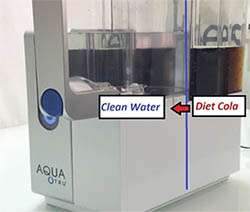 Hard water does not taste good.
Hard water does not taste good.
If you drink tap water that is hard, then you can expect a slightly pungent metallic taste.
The best thing is to drink delicious crunchy purified water by using a high quality water filter.
 Why Hard Water is a Total Disaster For Coffee
Why Hard Water is a Total Disaster For Coffee
There seems to be a debate on the subject, but I think the use of hard water is a better cup of coffee than soft water with a home-made water softener.
Water hardness is a measure of the amount of magnesium and calcium that dissolves in water.
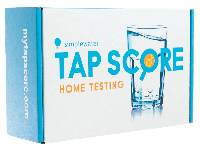 Water that is rich in these two minerals (especially magnesium) is not great for making the most of coffee flavorings.
Water that is rich in these two minerals (especially magnesium) is not great for making the most of coffee flavorings.
Replacing these minerals with sodium (i.e. creating soft water) results in coffee that is flat in comparison.
Very hard water can destroy an espresso machine with flakes and is therefore a major concern of the pressure coffee set. It also has some impact on the equipment of a manual coffee brewer.
A recommended resource for analyzing water hardness is a comprehensive water hardness test kit. In fact, it is almost impossible to make coffee with water that is too hard, since raising it to 95 ° C will lower the hardness from over 90 mg / l to 100 mg / l as a scale.
In fact, it is almost impossible to make coffee with water that is too hard, since raising it to 95 ° C will lower the hardness from over 90 mg / l to 100 mg / l as a scale.
If you have a water softener at home you’ll know that it’s not best for drinking. However, it’s best to decide for yourself. Try using both types of water (soft and hard water) and make a comparison test between both to see what I’m talking about.
Using Reverse Osmosis Water For Coffee
Reverse osmosis (RO) is a process in which all minerals are extracted from water. What remains is water that contains next to nothing.
When processing with pure reverse osmosis water (unlike coffee made from soft water) a flat cup of coffee is produced.
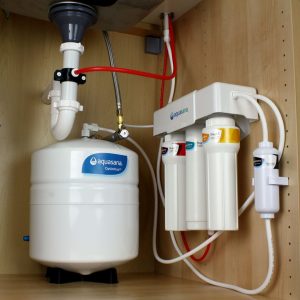 While reverse osmosis lacks all magnesium and calcium minerals that enhance the taste of coffee.
While reverse osmosis lacks all magnesium and calcium minerals that enhance the taste of coffee.
However, there are reverse osmosis systems that mix in mineral-rich water. Some of these systems can adjust the total dissolved solids content in your water.
A reverse osmosis water mix is a viable option for obtaining highly purified water. The SCAA recommends a total of 150 mg / L dissolved solids.
 If you do not have a reverse osmosis system with mixing features (also called “re-mineralisation”), you can mix the water yourself.
If you do not have a reverse osmosis system with mixing features (also called “re-mineralisation”), you can mix the water yourself.
Try different amounts of RO water for tap water and see if it improves the taste of your coffee (20 to 25% tap water is a good start).
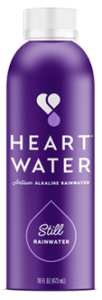
Use Bottled Water For Coffee?
Maybe but it depends on the quality of the bottled water.
Using bottled water is a problem because not all bottled waters are the same so it’s hard to get a consistent outcome if you don’t stick with the same brand.
In fact they can vary enormously in terms of mineral content, pH and coffee suitability. (Read: 8 Best Bottled Water and Why They are ALL Bad for You).
Bottom Line: Don’t Rely on Coffee Machine Filters, Get A High Quality Filter Water Instead
The good news is that most basic water issues have quick fixes and simple solutions.
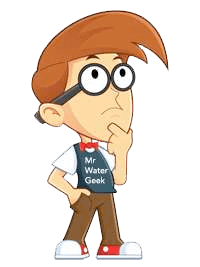 If you already like the coffee you prepare at home then you just have to deal with the quality of your water to make things better.
If you already like the coffee you prepare at home then you just have to deal with the quality of your water to make things better.
If you can not understand why your coffee doesn’t taste as nice as it should, then the water may be worth investigating.
 This article really only scratches the surface of the water chemistry and getting the best quality coffee machine water filters.
This article really only scratches the surface of the water chemistry and getting the best quality coffee machine water filters.
Still don’t know what to do? Ask your barista.
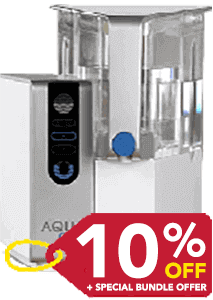 If there is a particular coffee shop that prepares coffee that you admire and you can not repeat the experience at home, ask the cafeteria if they use a water filter.
If there is a particular coffee shop that prepares coffee that you admire and you can not repeat the experience at home, ask the cafeteria if they use a water filter.
If they don’t then you should ask them what brand of coffee machine they use.
Otherwise, I highly recommend using a high quality water filter system like the Big Berkey or AquaTru, which produces the best quality water you can use.
AquaTru Water Filter | Berkey Water Filter |
 |  |
| - Arsenic: Approx 90% (unspecified). - Fluoride by 91.8% (WITHOUT extra filters). - Lead 97.5% - Benzene 99.9% - Chlorine 96.6% - Cysts 99.99% | - Arsenic by 99.9% (special filters required). - Fluoride by 99.9% (special filters required). - Lead 97.5% - Benzene 99.8% |
| Available in 1-size only. | Available in various sizes. |
| Plastic materials. | Metal & plastic materials. |
| Number of filters: 3 | Number of filters: 2 - 4 |
| Filter methods: Mechanical, Reverse Osmosis & Activated Carbon filters. | Filter methods: Black microporous-filters & white fluoride Filters |
| 4-stage filter process. | 2-stage filter process. |
| Holds a maximum water capacity of 3-quarts. | 2.25 Gallons |
| 45.7 x 45.7 x 38.1 cm | 19" High x 8.5" Diameter |
| System: 1 year limited warranty. | Filters: 2 years; System: 1 year. |
| Full Performance Data Sheet (AquaTru). | Berkey Contaminants List NSF/ANSI test results |
| SPECIAL OFFER? Yes, use code MRWATERGEEK  | SPECIAL OFFER? Yes, Big Berkey bundle sale |
 | |

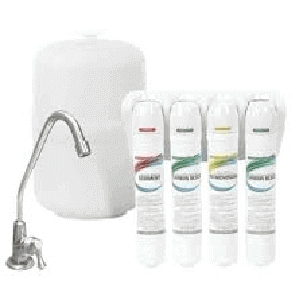
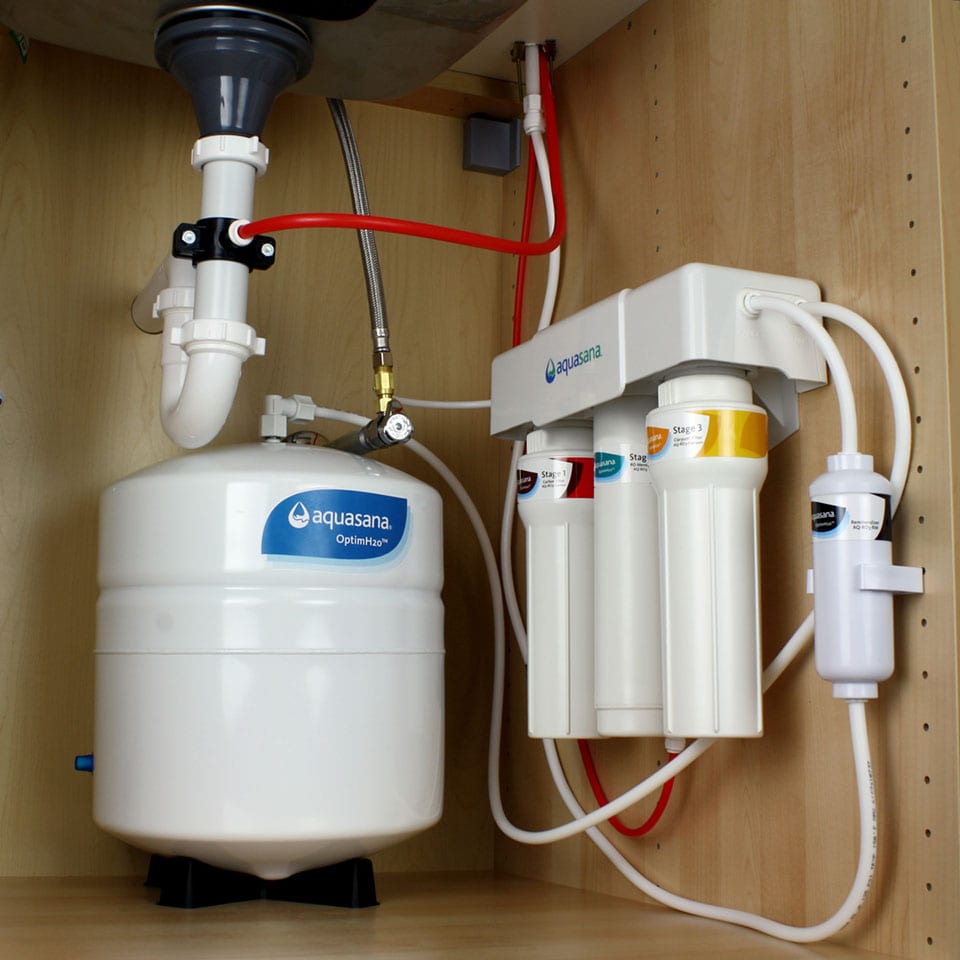
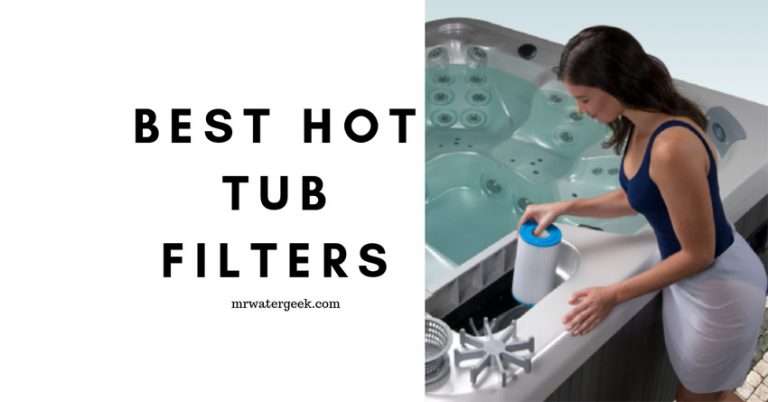
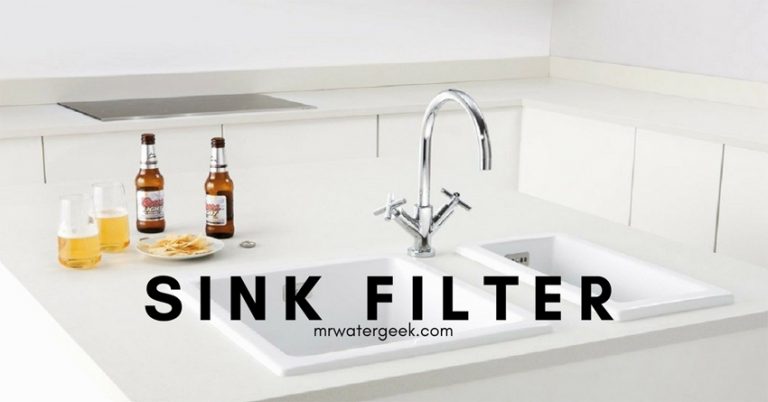
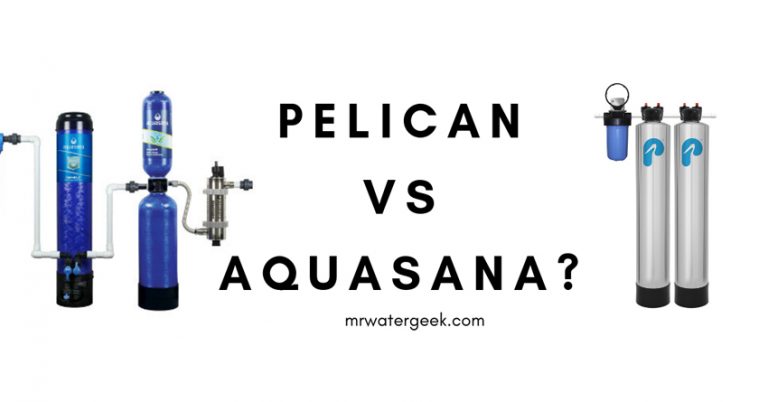
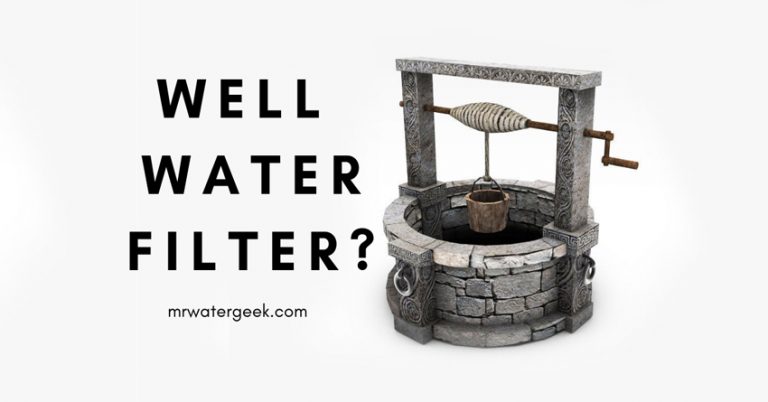
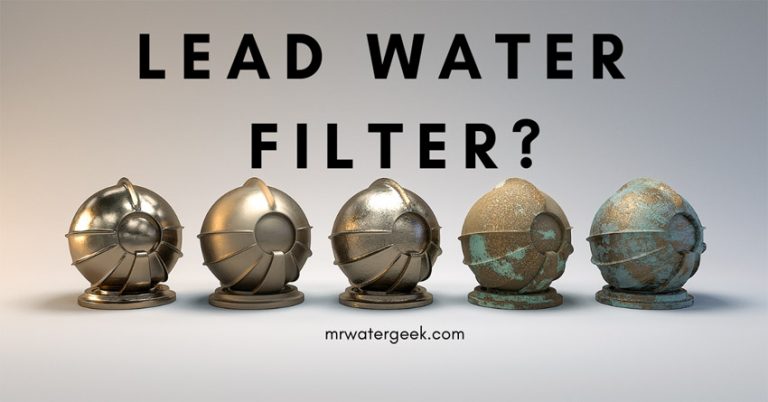
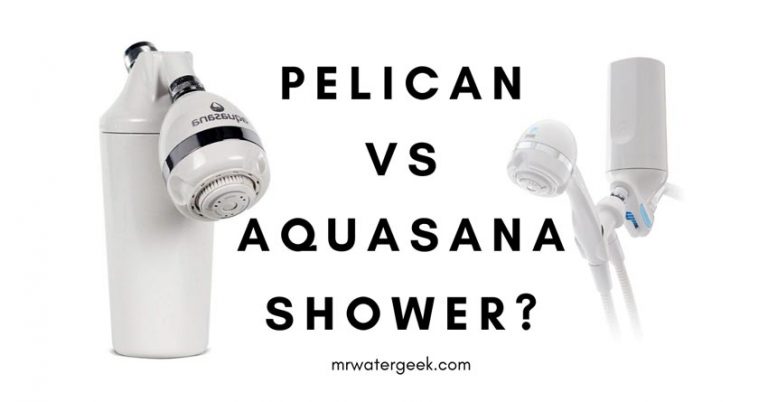
Do I need water filter if I have soft water
Hi Leslie
Most likely yes because a water softener by itself does not treat or remove any contaminants. Also, soft water is great for machines and appliances but not the ideal type of water to drink.
Stay hydrated,
Luke
Hey sir , i already use nestle water bottles for everything ( except washing ) so using the nestle water with my ecam De’Longhi magnifica s machine is enough or should i use their carbon filters ? Thanks in advance
Hi Luke,
I’m thinking about getting a Jura fully automatic espresso machine that has their own built in water filter that they want you to continue to purchase/replace. However, I only would use water from my Berkey in the machine. Shouldn’t that be sufficient so that I wouldn’t need to use their additional filter?
Hi Genevieve
I agree.
I see no reason to continue to purchase/replace the inbuilt espresso machine’s filter if you’re exclusively using filtered water from your Berkey.
Stay hydrated,
Luke
What if we are not using the flouride filters and just the regular charcoal ones, is it still good to bypass the Jura’s built in filter?
I do not drink or cook with my tap water (3M dumped some chemicals back in the 70s that are starting to show their presence.) I have an RO system. I bought it to improve my tea and it achieved that very well.
Since the only drinking water I have is RO, is there a way to improve it for making coffee in a single-serve machine?
This is a very interesting and informative article!
Hi Jeanne
RO produces some of the best tasting water around. However, if you want to experiment further then you might want to consider alkaline water. It has a deeply refreshing, smoother, slightly sweeter taste than regular water. It has some health benefits as well.
The only downside is that home ionizer machines are very expensive. But you could always buy a cheap bottle of alkaline water and see if it makes your coffee taste better.
Stay hydrated,
Luke